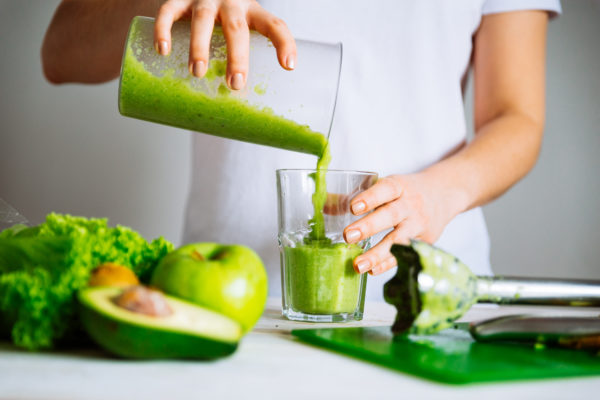For freelance performance coach Abigail Ireland, wellbeing is the key to being more productive. So, what can you do to live your best life and be more productive at the same time?
Do what you love and love what you do. That’s the saying, right? But what if what you love is just getting better at doing things? That’s the strange and fascinating position freelance performance consultant Abigail Ireland has found herself in.
As she tells me: “The reason I love doing it so much as a business is that it interweaves so much into the way I live my life.” After all, if you’re telling people how to work and live well, surely you have to practise what you preach and live as well as you can.
Certainly, when we meet in a magical secret garden near London’s Southbank Centre (I would tell you where it is but then… hey, that would defeat the point, right?) she does indeed seem to be living the good life.
Abi arrives at the modern-day locus amoenus with a bright-green smoothie that looks for all the world like a glowing healing potion. Not to mention a ‘protein salad’ that looks so healthy I think my cough improves just by looking at it.
But then, if your stated aim is “Transforming People. Transforming Performance.”, magic potions might be a reasonable place to start. Abi, however, says it’s much more down to cold hard science.
On her LinkedIn, she says: “Over the years, I’ve delved deep into the world of high performance and created an integrated system that addresses every factor that counts. The system is reinforced by professional credentials, science, studies and first-hand experience.”

The backstory
It’s certainly true that her career has allowed her to delve into performance from a lot of different perspectives. As she tells me, she started out far from magic gardens and health foods: “Before I started this I was working in banking in Australia. I was working in private equity, acquisition finance and then strategy – just lots of different roles in banking.”
So, what would turn a high-powered professional away from the world of banking? “Well, it was when my dad died really suddenly in 2013 while I was still in Australia. I’d always wanted to have my own business, but that was the catalyst. It made me realise how short life is, so you’ve got to do what you want to do and make the most of life’s opportunities.”
When you consider the world of banking, in which – in Europe at least – analysts can expect to work a minimum of 70 hours a week, you can see where the idea of performance and productivity consulting might have come from.
As Abi tells me, her career didn’t always give her time to think about wellbeing and performance: “While I was in banking I didn’t always get an opportunity to do that, because I was working long hours a lot of the time or I was working weekends or late nights. I didn’t always have time to take care of myself.”
Now she is a performance and productivity coach, of course, all that has changed: “Doing what I do now means that in order to do my job well, I have to be taking note of everything I learn in my personal life and applying it to my work. So when I cook a healthy recipe and think about how that affects me, I get to eat a good meal and I get to test out something for my business at the same time.”

Living your best life
As every freelancer will know, of course, running your own business isn’t all a bed of roses (even if we are in a magical secret garden): “I think there are pros and cons to both the freelance life and being an employee. There’s definitely that old thing of the grass always being greener on the other side. I sometimes look at people who are back in corporate and think ‘you get paid holidays and you get all those benefits of working for someone else’.
“For me it’s really that I always wanted to have my own business and have the freedom of doing what I want to do: being able to create things and bring them to life – and actually making a difference. That’s what’s really rewarding about it for me. Just being able to decide where your future goes rather than it being in someone else’s hands.”
The million-dollar question, though, and what you have almost certainly been waiting for: how exactly does Abi improve people’s performance? (And, obviously, how might that help us?) “A big thing is that a lot of people don’t like having routines because they think it will disrupt their creativity or be too boring and predictable. But having a routine actually frees up more of your time to do what you want.
“Start every day with a good routine. It’s really about thinking what’s going to be the best way to set up your day in the first hour after you get up. Most of the time it’s not actually checking emails or answering other people’s queries. It’s about getting into a mindset that will allow you to be most productive during the day.”
“Scheduling your calendar is really important too because it allows you to check you’re managing your time well. There’s a really good quote that ‘time is our most precious resource, but it’s also the resource that we waste more than anything.’”

Make it happen
1. Manage your to-do list
Look at what you’ve got on your plate and be ruthless about what’s important and what’s going to get you the results you’re looking for. Think about why you’re doing each task. You can always challenge things if they don’t seem quite right or will take too long.
2. Get a good routine
Think about what you can do every day as a morning routine, but also your evening routine in terms of switching off electronics and making sure you get a good night’s sleep.
3. Get a good night’s sleep.
Some people can operate on four hours and some people can’t. Most people need seven to eight hours, so it’s about giving yourself time to have a good sleep so you can wake up more energised and productive.
4. Eat well and exercise.
It’s really important to think about what you’re eating and how it makes you feel. Just because something’s the latest diet trend, it doesn’t mean it’s going to be good for you. Be present, sense your body and how food makes you feel. If you’re feeling tired or lethargic after something, eat less of it. Just be conscious that everyone’s different and you need to work out what food is good for you.
5. Learn to say no.
Saying no is one of the biggest challenges. It comes up time and again. Some people don’t even realise they aren’t good at saying no. Too often, they don’t say no to pieces of work, end up having too much on and feel overwhelmed. It’s really important to think about that: are you even aware that you’re not good at saying no?

Riding the rollercoaster
Between the top tips and the guidance on food and exercise, I worry I might be trying to squeeze a bit too much advice from Abi, but for you, dear freelance or borderline freelance reader, I ask for advice on just one more thing. “I think if you’re thinking about setting up your own business, you’ve really got to have passion and drive for it. It won’t be a quick overnight success.
“I’ve been working in business and banking for years and when you come out of that, you think you know so much about having a business. But actually, working for yourself is completely different. For one thing, the sales side of things and representing your brand isn’t something that comes naturally to most people.
“Working for yourself can be quite challenging and there will always be those ups and downs. Everyone who works for themselves knows that it will be a rollercoaster. It’s just about accepting that and knowing that it’s part of the process. It’s about emotional resilience.” Thinking carefully about your productivity and performance might, given what I’ve learned today, be a good idea too.
But, after squeezing that last bit of advice out – like the last drop from an orange into a glowing morning potion, I mean smoothie – it’s time to wrap things up in the magic garden. With a ledger of invaluable life advice under my belt, I open the gate and step out into the world again, certain that I’m going to put every bit of it to good use and completely revolutionise my performance and the way I live my life…
Well… at least I’ve still got the smoothie…







